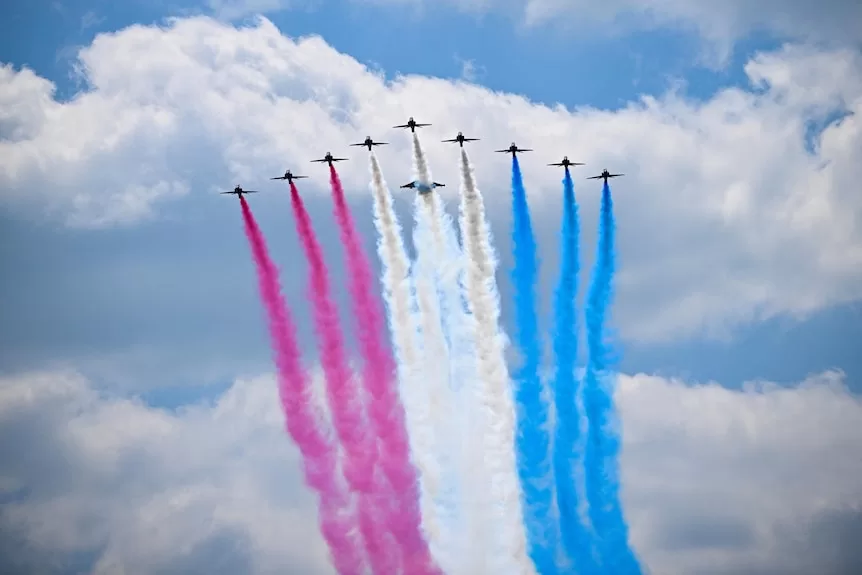- In short: King Charles III has led Britain’s D-Day’s 80th anniversary commemorations, before heading to France in his first international trip since his cancer diagnosis.
- The date pays tribute to the soldiers who fought to liberate France, in a major turning point of World War II.
- What’s next?: World leaders, including Ukrainian President Volodymyr Zelenskyy and US president Joe Biden, will meet in France on Thursday.
King Charles III has headed Britain’s commemorations for D-Day’s 80th anniversary, as he prepares for his first international trip since his cancer diagnosis.
The 75-year-old monarch, who only recently resumed public engagements, spoke at a remembrance event in Portsmouth, on England’s south coast.
He is also expected to head to France on Thursday local time for further commemorations, alongside world leaders including Ukrainian President Volodymyr Zelenskyy and US president Joe Biden.
It will be the royal’s first overseas visit since his cancer diagnosis was announced in February.
Charles, who served himself in the Royal Navy and Royal Air Force, told the flag-waving audience to “give thanks for all those who gave so much to win the victory whose fruits we still enjoy to this day”.
“Let us once again commit ourselves always to remember, cherish and honour those who served that day,” he said.
The date pays tribute to the soldiers who fought to liberate France, in a major turning point of World War II.
About 4,400 Allied troops died on D-Day.
Wednesday’s UK commemorations, which included readings, music and re-enactments from the period, also heard from aging veterans.
Roy Hayward—who was aged 19 at the time— lost both his legs below the knees to amputation during the war.
“I always considered myself one of the lucky ones that survived, because so many of us didn’t,” Mr Hayward said.
“I represent the men and women who put their lives on hold to go and fight for democracy and this country.
‘It’s a chance of a lifetime’
Veterans also gathered in Ouistreham, France to pay tribute.
Aged between 97 and 103, many of the veterans had walking sticks or were in wheelchairs, and wore military medals pinned to their lapels.
John Dennett, 99, told the BBC he was looking forward to the ceremonies of the coming days.
“It’s a chance of a lifetime,” he said.
“Eighty years ago, it’s a long time, going back, to see what we started.”
AFP/Reuters
